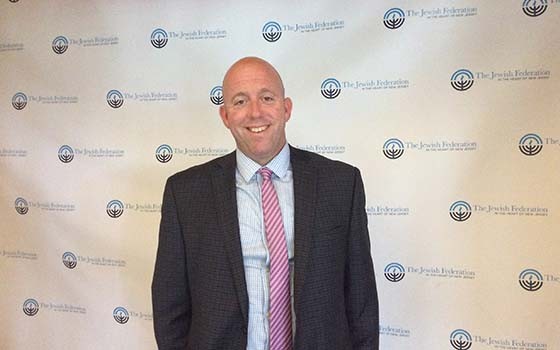
The following blog first appeared Friday, June 29, as an email update from Keith Krivitzky, CEO, the Jewish Federation in the Heart of New Jersey.
Dear Friends and Colleagues,
I’ve always had a passion for Israel. Not quite sure where it came from, since I didn’t visit Israel till I was in college. But I’ve always felt a deep personal tie to the Jewish State. Perhaps it’s because I like the idea of belonging to something greater than oneself, and I believe that Israel is a vehicle for Jews to feel proud and to try and make a difference in the world. It doesn’t always get things right, but there is an added layer of meaning and purpose to life there.
After that trip in college, it was just before the Oslo accords and I believed one of the key challenges Israel faced was to figure out its relationship to the Palestinians. I spent a good amount of time doing research on the development of Palestinian national identity. (And if you’re interested in what I found, email me offline and I’ll share.) After spending some time at the Hebrew University, I was living on a kibbutz to improve my Hebrew and making periodic visits to the West Bank and Gaza. I remember there was a former member of Knesset who was living on the kibbutz and she asked me: “Why is a nice Jewish boy spending all this time focusing on the Palestinians? Shouldn’t you be focusing on your own people? We need you even more than they do.”
I’m not sure that was the trigger, but in a way that notion stuck. I realized that there was very little I could do to advance the cause of peace or accommodation between Palestinians and Jews, but there was a lot I could do within the Jewish people. Hence my career and passions since that point in time.
I share this brief biographical anecdote now because I have been invited to participate on an intriguing program called Encounter. This is a program that takes Jewish leaders on a tour of the West Bank to listen to Palestinian voices and better understand the Palestinian narrative. I had heard about this program for years, but many who participate on it are rather secretive about their participation, mostly because they fear backlash or professional repercussions. Playing or showing too much sympathy for Palestinians isn’t the norm in the Jewish world, and it often isn’t received so well.
Y’all should know me well enough by now to know that I’m not terribly bashful, and so I’m sharing upfront. But I’m also going to share my perspective and motivations with you, before and after.
I believe that it is more important than ever to know where the “other” is coming from in order to understand what real progress is possible, how and when - and what may not be feasible. This is true in my work at Federation, in the business arena, and in politics (though practiced far too infrequently in that realm)...and is essential for any real problem-solving. Demonstrating this sensitivity to the other is also critical as more and more in our community, especially younger folk, are being turned off because of their impression of how Israel responds to the Palestinian issue. Plus, I’m looking forward to revisiting places where I spent some time 25 years ago, though some of these visits were things we did on our interfaith clergy journeys.
At the same time, I am skeptical of how this program paints a picture. I hear great things about the quality of the trip, but every good program like this has an agenda and I think I know what the agenda is: they want to sensitize Jewish leaders to the plight of Palestinians so that they can exert more influence to “end the occupation.” I have no problem with agendas; it is a good thing to stand for something and to try to achieve a purpose. Nor do I have an issue with this particular agenda…and this trip is a brilliant way of moving it forward. My question or concern is with the pedagogy and framing. This isn’t a trip about dialogue with Palestinians or exchanging ideas and perspectives to find possible common ground. This trip is about “listening”…and there is a focus on one set of voices, a subset of a subset, and by looking just at that as your context, your perspective can become skewed. The assumption of these trips is also that those participating already have the Jewish/Israel perspective and so they are just filling in an information gap by providing the other side. I am skeptical of that as well. And so a large part of why I am going is to see how things get presented, and how they are heard.
I’ll let you know what I hear and see. It should be an interesting journey. And if you have any questions, thoughts or concerns…please share them with me.
With that, just a couple of reads for the weekend. It should be nice out go out and enjoy!
- Stories that don’t get much play: https://www.timesofisrael.com/idf-sends-aid-to-syrians-fleeing-daraa-in-overnight-good-neighbor-operation/
- Steve, as usual, has a good point looking to explore on this trip: https://www.jns.org/opinion/jared-kushner-has-it-all-wrong-on-the-palestinians/
- GREAT piece and on point with my recurring particular pride/universal challenge theme: http://rabbisacks.org/people-dwells-alone-balak-5778/
Best for a Shabbat Shalom!
Keith

0Comments
Add CommentPlease login to leave a comment